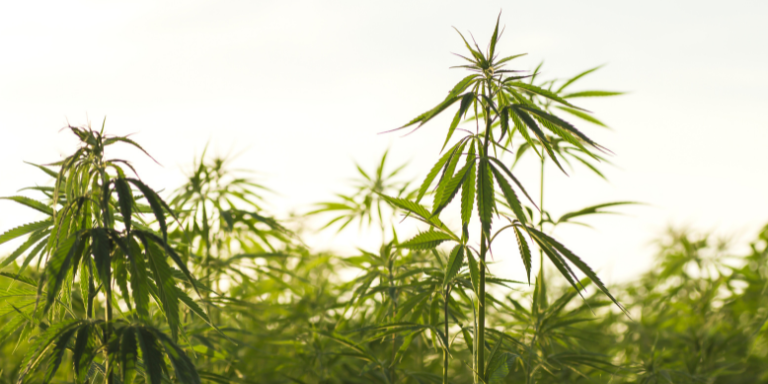How Hemp Farming is Transforming Rural Economies in India
In recent years, hemp farming has gained attention as a sustainable solution with immense potential for rural economies in India. With its fast growth, versatile applications, and low environmental impact, hemp has proven to be a beneficial crop for Indian farmers. As India focuses on sustainable agriculture, hemp farming is emerging as a viable option for rural communities seeking economic stability and growth.
The Rise of Hemp Farming in India
Traditionally, India has a rich history of hemp cultivation, where it has been used for making textiles, ropes, and even traditional medicines. However, with increased awareness of its economic potential and environmental benefits, there is now renewed interest in industrial hemp. In recent years, several state governments in India, such as Uttarakhand and Uttar Pradesh, have begun pilot projects and legalized hemp farming for industrial purposes.
This renewed focus on hemp farming provides an avenue for job creation, boosts local economies, and offers a potential solution to rural poverty.
Benefits of Hemp Farming for Rural Economies
-
Job Creation and Employment Opportunities
Hemp cultivation and processing require various stages of labor-intensive activities, from planting and harvesting to processing the raw materials. This creates numerous job opportunities, especially in rural areas where employment opportunities are limited. For each hectare of hemp, jobs are generated across multiple stages of production, including sowing, cultivating, and processing for hemp products. -
Economic Stability for Farmers
Hemp is a resilient crop that requires minimal pesticides and water, making it an economically viable choice for farmers. Unlike other cash crops that might be more susceptible to climate change and pests, hemp is adaptable to different soil types and can withstand varying environmental conditions. This results in stable yields, which contributes to farmers’ economic security, providing a buffer against the volatility of traditional crops. -
Increased Demand for Hemp-Based Products
The demand for hemp-based products, such as textiles, hemp oil, bioplastics, and cosmetics, is on the rise in both domestic and international markets. Indian hemp products are gaining recognition for their quality, and with the global shift towards sustainable, eco-friendly products, demand is only expected to grow. The increased demand not only boosts local economies but also encourages farmers to cultivate more hemp, increasing their income. -
Potential for Exports and Foreign Exchange
Hemp fiber and hemp oil are popular in the global market due to their sustainability and environmental benefits. By tapping into this market, Indian farmers and businesses stand to benefit from exports, generating significant foreign exchange for the economy. This demand further strengthens rural economies by providing a global market for hemp-based products, contributing to India’s position in the hemp industry. -
Hemp as a Versatile Crop for Rural Areas
Hemp is highly versatile and has multiple uses across various industries, including textiles, construction, cosmetics, and even paper production. In rural India, the introduction of hemp has enabled small-scale farmers to diversify their income sources. By providing alternative revenue streams, hemp farming reduces farmers' dependency on a single crop and promotes financial stability.
Environmental Benefits and Their Impact on Rural Economies
-
Improved Soil Health
Hemp’s deep-rooted structure helps in reducing soil erosion, enhancing soil quality, and absorbing harmful toxins from the soil. Hemp also leaves behind nutrient-rich biomass that acts as natural fertilizer. For rural communities that rely on farming for their livelihoods, improved soil health translates into better yields for other crops grown in rotation with hemp, providing long-term economic benefits. -
Reduced Water Consumption
Compared to traditional crops like cotton, hemp requires significantly less water. In regions where water scarcity is an issue, hemp’s low water needs make it an ideal alternative. For rural farmers, reduced reliance on water resources translates into lower production costs and helps them sustain their farms despite changing climate patterns. -
Carbon Sequestration and Climate Benefits
Hemp is known for its ability to sequester carbon dioxide, helping to mitigate the effects of climate change. With rising global temperatures, rural economies are at risk of extreme weather conditions. Hemp’s carbon-sequestering properties support a healthier environment, which indirectly protects the rural agricultural landscape from climate impacts. As India aims to reduce its carbon footprint, hemp farming aligns with national sustainability goals.
Challenges and Opportunities for Hemp Farming in India
While hemp farming holds great potential, certain challenges must be addressed to fully capitalize on its benefits:
-
Legal and Regulatory Challenges
Despite hemp’s low THC levels and industrial classification, there are still legal restrictions surrounding its cultivation in some Indian states. Clear regulatory guidelines and government support will be essential to encourage wider adoption. Increased awareness and policy reforms will enable more farmers to participate in hemp farming, benefiting the rural economy. -
Lack of Infrastructure and Processing Facilities
To meet the demand for hemp-based products, adequate processing facilities are essential. Currently, many rural regions in India lack the necessary infrastructure for large-scale hemp processing, leading to potential revenue loss. Government and private sector investment in processing facilities can enable farmers to produce value-added hemp products, boosting profitability. -
Training and Knowledge Transfer
Hemp farming requires technical knowledge about crop management, harvesting techniques, and product processing. Educating farmers on best practices and providing them with necessary resources and guidance will be key in unlocking hemp’s potential. Training programs and initiatives by the government or NGOs can ensure that rural farmers have the skills and knowledge required to cultivate hemp profitably.
The Future of Hemp Farming in India
With changing attitudes towards sustainable agriculture, the future looks promising for hemp farming in India. By harnessing its economic and environmental benefits, rural communities can transform their local economies. With support from policymakers, technological advancements, and increased awareness, hemp has the potential to become a cornerstone of India’s agricultural landscape.
India’s proactive stance on promoting sustainable practices in agriculture can encourage more rural farmers to consider hemp as a viable crop. By supporting hemp farming, India can contribute to the global sustainable agriculture movement, positioning itself as a leader in eco-friendly agriculture while ensuring prosperity for its rural communities.
Conclusion
Hemp farming is more than a trend; it’s a sustainable solution that offers economic and environmental benefits to rural India. By supporting hemp cultivation, India is investing in a greener future for rural communities, creating job opportunities, improving soil health, and driving economic growth. With proper support, training, and infrastructure, hemp can empower Indian farmers and contribute to a more sustainable, prosperous future for India’s rural economy.
Continue reading









